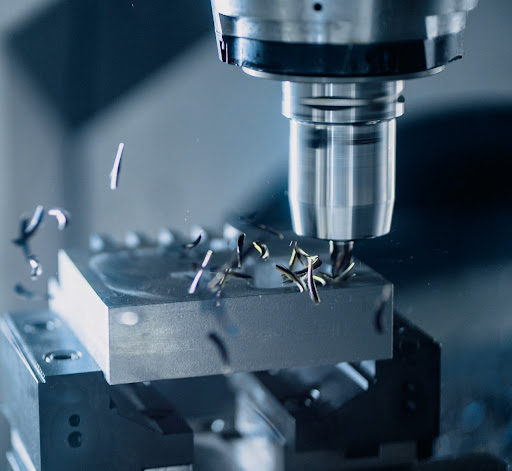
The manufacturing industry has seen a transformation because of CNC (Computer Numerical Control) machining, which offers accuracy and efficiency in producing high-quality components and goods. For example, nowadays, fast machining is possible thanks to CNC equipment. However, the quality, robustness, and functionality of the end product are significantly influenced by the material selection utilized in CNC machining.
In this article, we’ll go through the many kinds of materials used in CNC machining and the factors producers should take into account when selecting materials.
The Type of Materials Used in CNC Machining
Metals
Aluminum, titanium, steel, brass, and copper are just a few of the metals that may be machined with CNC technology. Due to its lightweight, great strength-to-weight ratio, and excellent corrosion resistance, aluminum is one of the most widely utilized metals in CNC machining.
A combination of its high strength, long lifespan, and resilience to wear and tear, steel is also a favored alternative.
Brass and copper are the best materials for parts that require outstanding electrical conductivity, whereas titanium is utilized for parts that need to be highly strong and lightweight.
Plastics
Different kinds of polymers, including ABS, nylon, polycarbonate, and PVC, can also be machined using CNC technology. Given its superior strength, toughness, and impact resistance, ABS is a popular choice, whereas polycarbonate is the best material for sections that need transparency and shatter resistance.
PVC works well for parts that need to be excellently resistant to chemicals, whereas nylon is frequently used for parts that need to be exceptionally strong and durable.
Composites
Different kinds of composite materials, like Kevlar, carbon fiber, and fiberglass, can also be machined using CNC technology. For items that need to be strong, rigid, and have exceptional heat and chemical resistance, carbon fiber is a common choice.
Kevlar works best for parts that need to be excellently resistant to impact and penetration, whereas fiberglass is utilized for parts that need to be exceptionally strong and durable.
Here Is What To Consider Before Choosing Materials To Use
Cost
When deciding which suitable CNC materials to use for CNC machining, manufacturers should also take material cost into account. Even while some materials may have good qualities for the finished product, the manufacturer may find them to be unaffordable and inefficient. It’s crucial to achieve a balance between a material’s cost and its qualities.
Machinability
Another important aspect to think about when selecting materials for CNC machining is the material’s machinability. Some materials could be challenging to machine, increasing production costs and time. Materials that are simple to machine and require little post-processing should be used by manufacturers.
Functionality
When selecting materials for CNC machining, manufacturers should take the functioning of the finished product into account. The chosen material must have the strength, weight, and wear-and-tear resistance required for the finished product’s intended purpose.
Impact on the Environment
Another crucial aspect to take into account is the material’s impact on the environment. Materials that are eco-friendly and have less influence on the environment should be used by manufacturers.
Regulatory Conformity
When selecting materials for CNC machining, manufacturers should also take regulatory compliance into account. Due to laws governing environmental effects or health and safety, some materials could be prohibited.
Surface Quality
Another important aspect to take into account when selecting materials for CNC machining is the completed product’s surface polish. To attain the desired surface smoothness, some materials would need additional post-processing, which would increase production time and costs.
In conclusion, the quality, reliability, and practicality of the finished product are significantly influenced by the material selection utilized in CNC machining. Before selecting materials for use, manufacturers should take into account aspects like functionality, price, machinability, environmental impact, regulatory compliance, and surface finish. Manufacturers may develop high-quality parts and products that satisfy the expectations of their clients by choosing the appropriate material for CNC machining.
Interesting Related Article: “7 Advantages of CNC Machining for Mass Production“
